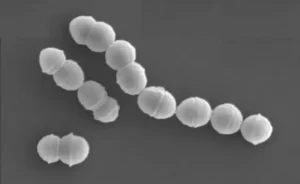Pfizer anticancer drug found to prevent aneurysms
- Child Products from Aliexpess and Temu Contain Carcinogens 3026x Over Limit
- Daiichi Sankyo/AstraZeneca’s Enhertu Shows Positive Results in Phase III DESTINY-Breast06 Clinical Trial
- Mn007 Molecules Offer Potential for Combating Streptococcus pyogenes Infection
- Popular Indian Spices Banned in Hong Kong Over Carcinogen Concerns
- AstraZeneca Admits for the First Time that its COVID Vaccine Has Blood Clot Side Effects
- Gut Bacteria Enzymes Offer Hope for ABO Universal Blood Transfusions
Pfizer anticancer drug found to prevent aneurysms
- AstraZeneca Admits for the First Time that its COVID Vaccine Has Blood Clot Side Effects
- Was COVID virus leaked from the Chinese WIV lab?
- HIV Cure Research: New Study Links Viral DNA Levels to Spontaneous Control
- FDA has mandated a top-level black box warning for all marketed CAR-T therapies
- Can people with high blood pressure eat peanuts?
- What is the difference between dopamine and dobutamine?
- How long can the patient live after heart stent surgery?
Pfizer anticancer drug found to prevent aneurysms, opening the door for non-surgical treatment.
Five in 100 people have a dilated, weakened artery in their brain, known as an aneurysm , and most people don’t know it’s there. In rare cases, these aneurysms rupture, with potentially fatal consequences.
As many as 40 percent of patients with a ruptured brain aneurysm die, and 40 percent of survivors are left with permanent brain damage.
Brain aneurysms that are at risk of rupture can only be treated with surgery, and surgery is useless if the aneurysm is located in a location that is inaccessible to surgery.
But the results of a new study suggest a new treatment option for aneurysms — the anticancer drug sunitinib . This is an oral anticancer drug developed by Pfizer that can selectively target multiple tyrosine kinase receptors.
On June 14, 2023, researchers from the Brain Science Center of RIKEN published a paper entitled: Increased PDGFRB and NF-κB signaling caused by highly prevalent somatic mutations in intracranial aneurysms in Science Translational Medicine, a sub-journal of Science Research Papers.
The study found that mutations in the PDGFRB gene , a tyrosine kinase receptor, are commonly found in aneurysms , and that the tyrosine kinase receptor inhibitor sunitinib prevented small tumors caused by mutations in the PDGFRB gene.
Aneurysms occur in mice, a breakthrough discovery that may lead to the development of drugs to treat aneurysms.

There are two main types of aneurysms, about 90% are intracranial saccular aneurysms (ISA) , which form a berry-like protrusion on the outside of the artery, and 3%-5% are intracranial fusiform aneurysms (IFA) , which will Dilate the vessel into a spherical shape.
ISAs are more likely to rupture, but they are also easier to treat. IFA rarely ruptures, but when it does, the patient prognosis is poor.
According to statistics, most cerebral aneurysms are sporadic, and only about 10% have familial inheritance.
In this study, the research team wondered whether other risk genes and mutations were involved in aneurysm development, although their contribution was expected to be small.
To find out, the research team first performed whole exome sequencing (WES) and then targeted deep sequencing (TDS) on arterial samples from patients .
The sample included 65 arteries with aneurysms and 24 arteries without aneurysms.
Astonishingly, 92 percent of the aneurysms had at least one mutation in a panel of 16 genes, whereas none of the mutations were found in normal arterial samples.
Six of these mutations were found in both intracranial saccular aneurysms (ISA) and intracranial fusiform aneurysms (IFA) , while the other 10 mutations were found in only one of these aneurysms.
All mutations shared by both types of aneurysms activated the NF-κB signaling pathway, which had previously been shown to be involved in aneurysm formation .
These results suggest that the mutations found in these 16 genes are relatively unique to sporadic aneurysms, which also suggests that most aneurysms may be caused by genetic mutations.
One of the most common mutations is in the gene PDGFRB , which produces the platelet-derived growth factor receptor beta protein ( PDGFRB ) .
The PDGFRB protein is a tyrosine kinase receptor involved in cell signal transduction and the formation of the cardiovascular system.
Previous studies have linked mutations in this gene to a rare tissue overgrowth syndrome, but not to aneurysms.
The study showed that mutations in the PDGFRB gene were present in both intracranial saccular aneurysms (ISA) and intracranial fusiform aneurysms (IFA) , suggesting that the gene plays a key role in aneurysm formation .
Next, the research team used spatial transcriptomics techniques to see whether PDGFRB mutations were present throughout the tissue layers of the aneurysm, which would help explain the mechanism behind its formation.
The results showed that its mutations were restricted to the outer layer of cells in small aneurysms, but spread to the inner layer of larger aneurysms.
This suggests that genetic mutations on the arterial surface initially trigger aneurysm formation, and that mutated cells then proliferate and spread to the inner lining of the artery, weakening the vessel wall .
The research team then turned to cells grown in petri dishes to further study the effects of the PDGFRB mutation.
They found that cells with mutations in the gene migrated faster than wild-type cells and showed signs of inflammation.
Treating the cells with sunitinib , a tyrosine kinase inhibitor , slowed their migration and reduced inflammation .
This both confirmed the effects of PDGFRB mutations and suggested that it might be possible to delay their effects with drugs.
Finally, the team tested these findings in mice by first using an adeno-associated virus (AAV) vector to deliver the mutated PDGFRB gene to cells in the basilar artery of the mouse brain, which accounts for only 3-5 percent of aneurysms but It is one of the most difficult parts to treat.
After one month, the arteries of these mice weakened and swelled into intracranial fusiform aneurysms (IFAs) twice their initial size , again confirming that mutations in PDGFRB may cause aneurysms.
However, no aneurysms were seen in the mice treated with a daily dose of sunitinib starting from the first day after AAV virus infection, and their basilar arteries were approximately the same size as the control group, suggesting that sunitinib Can prevent the formation of aneurysms.

The research team said that this study suggests that there are some shared genetic factors in high-risk cases of aneurysms, such as mutations in the PDGFRB gene, which opens up a new avenue for the subsequent development of drug interventions for aneurysms.
Paper link :
https://www.science.org/doi/10.1126/scitranslmed.abq7721
Pfizer anticancer drug found to prevent aneurysms, opening the door for non-surgical treatment.
(source:internet, reference only)
Disclaimer of medicaltrend.org
Important Note: The information provided is for informational purposes only and should not be considered as medical advice.



